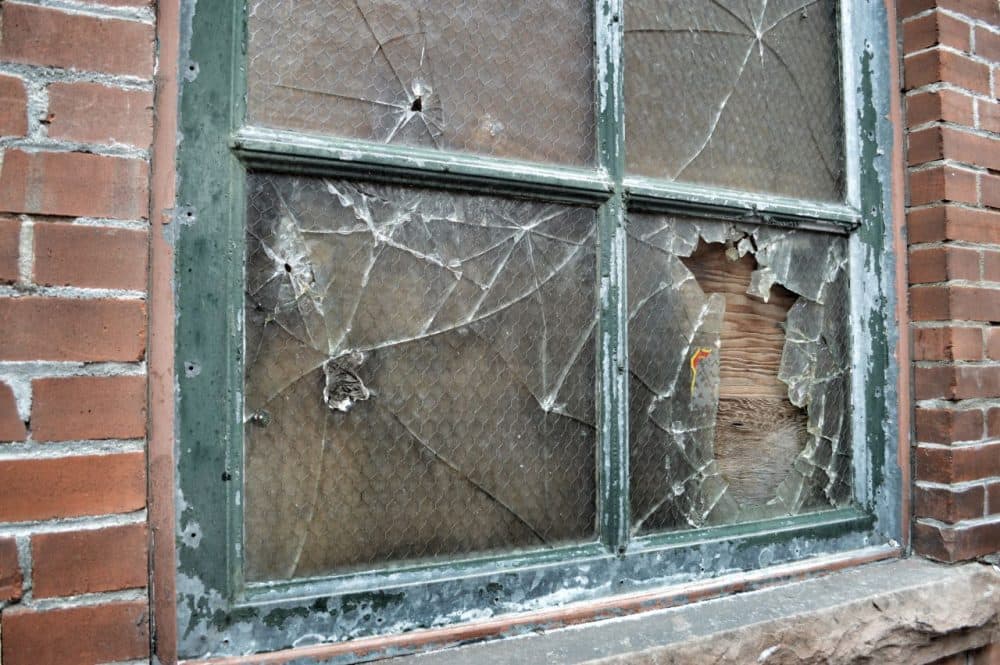Advertisement
Do Broken Windows Really Predict Neighborhood Crime?
Resume
Can a broken window really predict crime?
That's the idea behind "broken windows." The theory goes that areas with a lot of public disorder — trash, ruined cars, broken lights — are also those plagued by public violence.
But, according to the Boston Area Research Initiative, at least in Boston, it turns out that's not quite the case. A better predictor of violent crime is actually private disorder — things like domestic abuse and landlord-tenant disputes, according to Daniel O'Brien, an assistant professor at Northeastern University who completed a study on Boston neighborhoods and crime. He says private crimes appear to spill over into the neighborhoods they inhabit, sometimes with deadly consequences.
Guests
Daniel O'Brien, assistant professor of public policy and urban affairs and criminology and criminal justice at Northeastern University.
Daniel Mulhern, senior adviser to Boston Mayor Marty Walsh's Public Safety Initiative.
More
- "The two databases provided six dimensions of physical and social disorder and crime. The cross-lag model revealed eight pathways by which one form of disorder or crime in 2011 predicted a significant increase in another in 2012. Although traditional interpretations of broken windows emphasize the role of public disorder, private conflict most strongly predicted future crime."
The Atlantic: Broken Windows: The Police And Neighborhood Safety
- "Second, at the community level, disorder and crime are usually inextricably linked, in a kind of developmental sequence. Social psychologists and police officers tend to agree that if a window in a building is broken and is left unrepaired, all the rest of the windows will soon be broken. This is as true in nice neighborhoods as in rundown ones. Window-breaking does not necessarily occur on a large scale because some areas are inhabited by determined window-breakers whereas others are populated by window-lovers; rather, one unrepaired broken window is a signal that no one cares, and so breaking more windows costs nothing. (It has always been fun.)"
Politico: Don’t Blame My ‘Broken Windows’ Theory For Poor Policing
- "Today, with the highly publicized deaths of a number of African-Americans at the hands of white police officers over the past year, so-called broken-windows policing has come under attack by activists and academics alike ... Despite these and other criticisms, the demand for order remains high in minority and poor communities. And I would argue that our theory has been largely misunderstood. First of all, broken windows was never intended to be a high-arrest program."
This segment aired on August 18, 2015.